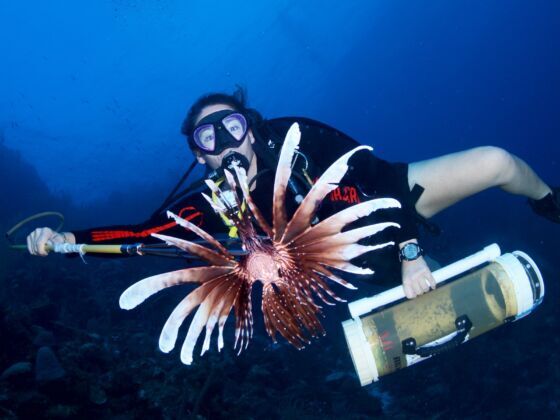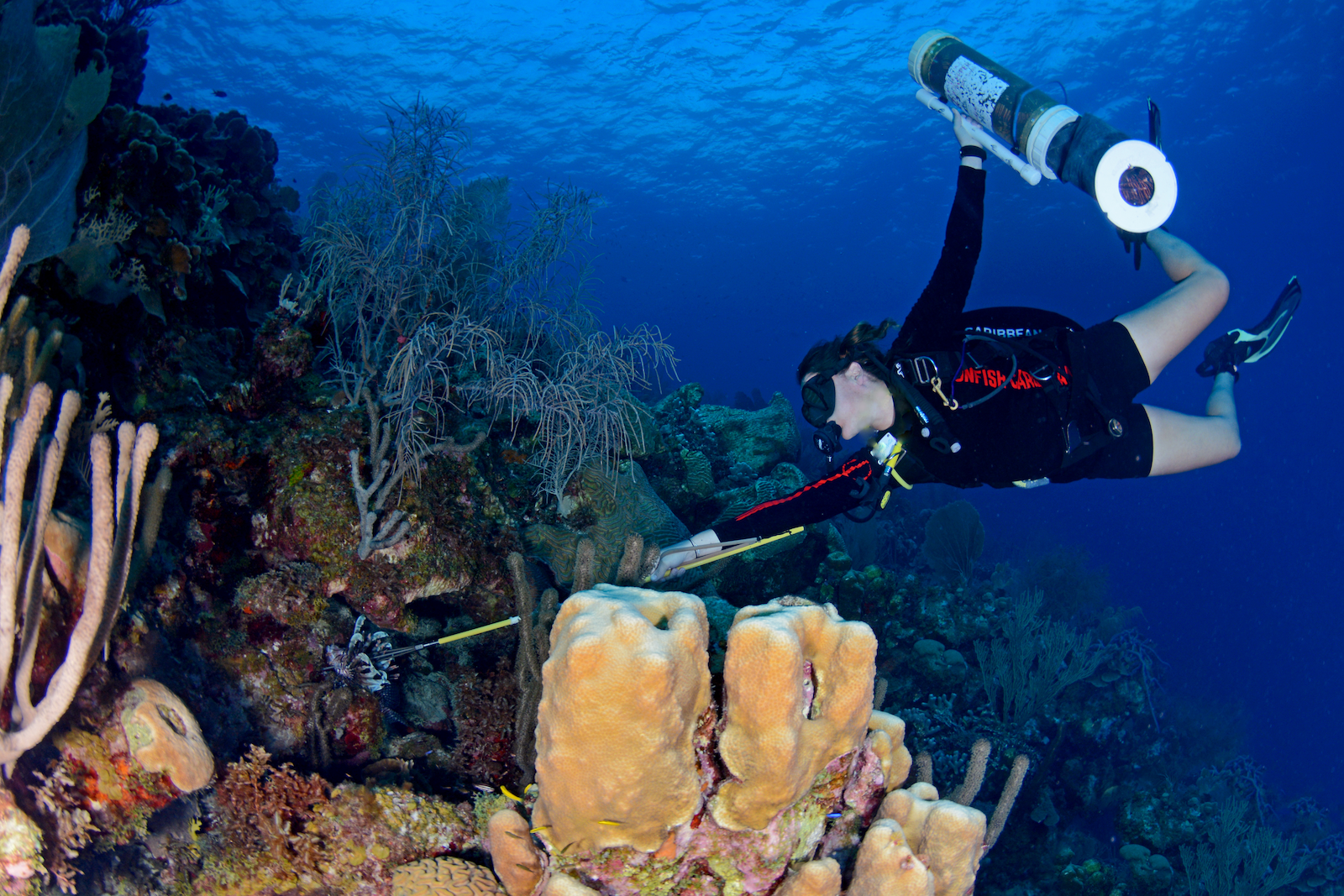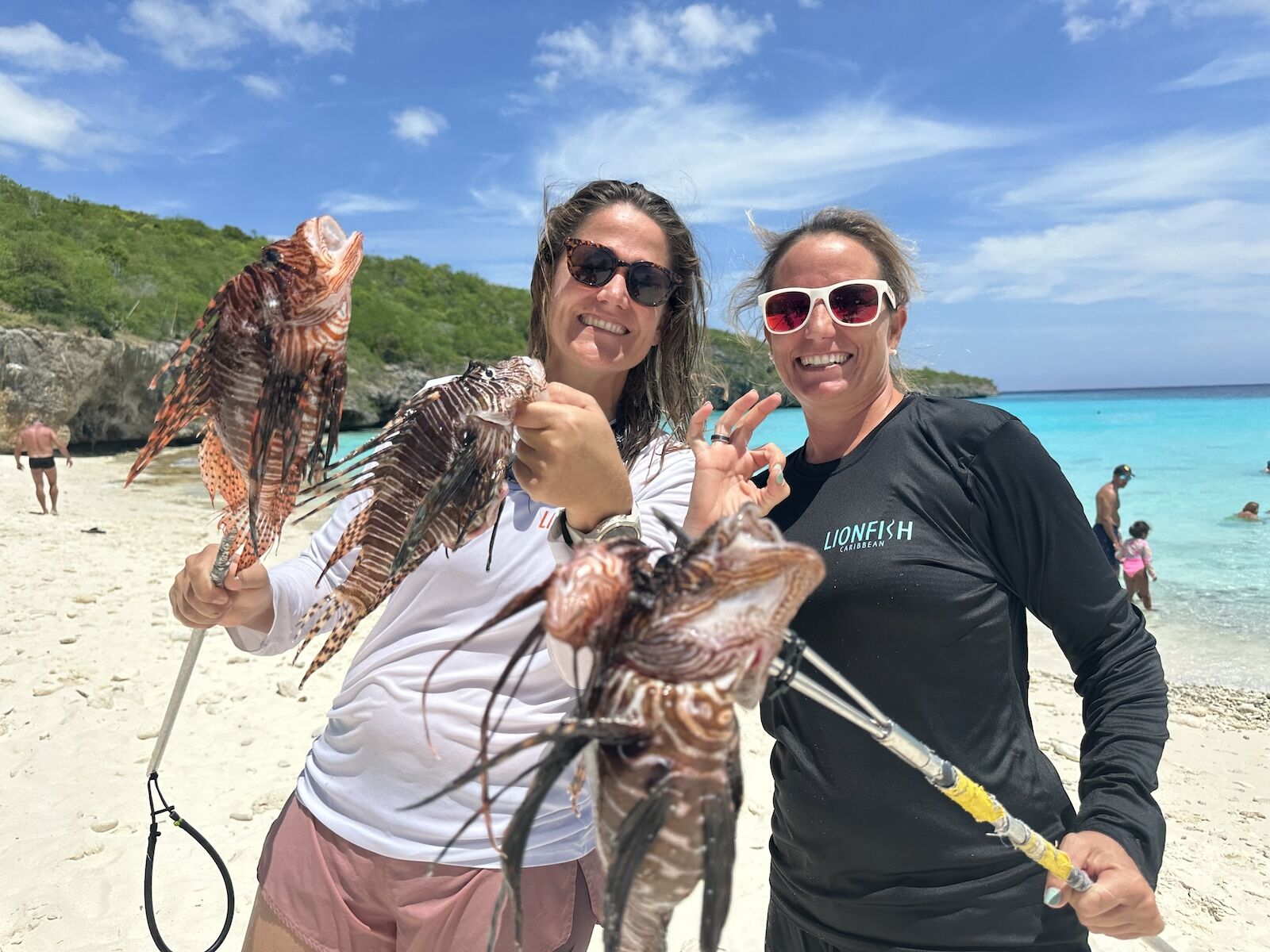Lionfish look stunning. Vibrant stripes circle the entire body, and venomous, striped spikes shoot out at all angles. They’re also one of the most invasive species in the world. Originally from the South Pacific, Indian Ocean, and Red Sea, lionfish were introduced to the Caribbean via Florida, where people kept them as tank fish that were then released or accidentally set loose during hurricanes.


Meet the Woman Turning Curaçao's Invasive Lionfish Into Delicious Meals and Beautiful Jewelry
Today, lionfish wreck havoc on fragile aquatic environments in the Caribbean. They have no natural predators and can lay up to two million eggs per year. Lionfish devour the native fish species that maintain the balance necessary for healthy coral reefs, and contribute to depleted fish stocks that people already overfish. The world’s apex predator, humans, are starting to fight back.

Photo: Lisette Keus
On Matador Network’s podcast No Fixed Address: The World’s Most Extraordinary People, Michael Motamedi and Vanessa Salas sat down in Curaçao with Lisette Keus. Keus hunts lionfish for her Willemstad restaurant and store Lionfish Caribbean, where the meat is turned into a range of cooked and raw lionfish dishes and the carcass turned into jewelry. Her community of lionfish hunters is helping to manage the invasive population and protect the reefs in an aesthetic, delicious way.
Keus was born in The Netherlands and lived an early nomadic lifestyle thanks to traveling parents who took her to New Zealand and Australia in her childhood to live in a camper van for more than a year. They then moved to Curaçao, a Dutch Island, for five years. It made a lasting impression on Keus. After college in The Netherlands and a short stint working in Bangladesh, Nepal, and India, she moved back to Curaçao and worked as a journalist.
Keus worked on a story on lionfish that peaked her interest on this creature she saw while diving — a fish that she doesn’t remember seeing when she lived in Curaçao when she was younger. By 2010, Keus had left journalism to hunt lionfish full time with a lionfish supply business for chefs and then her own restaurant and jewelry business.
Curaçao is a world-class diving destination with dozens of accessible dive spots that can be reached from the beach. The water has high visibility and an easy current — prime conditions for spearfishing lionfish. Keus and other lionfish hunters approach from the side and spear the animal in the head for a quick kill that keeps the meat clean. A skilled hunter on an average, hour-long dive can kill 40 lionfish.

Photo: Lisette Keus
The intimidating, poisonous spikes are defensive. Swarms of lionfish aren’t attacking people, but their spikes are keeping most away — for good reason, considering the painful venom can cause swelling, nausea, and other symptoms. The venom isn’t an issue for eating the fish raw as ceviche, sashimi, or tartare if it’s cleaned correctly, and cooking or drying the meat neutralizes the poison.
Without natural predators and having an extremely productive birthrate, hunting alone won’t solve the lionfish problem. It’s not nothing, though, and Keus also raises awareness of how lionfish impacts native animal and plant life in the Caribbean. Plus, it’s delicious.
To hear more, listen to episode 10 of No Fixed Address on your favorite listening platform.